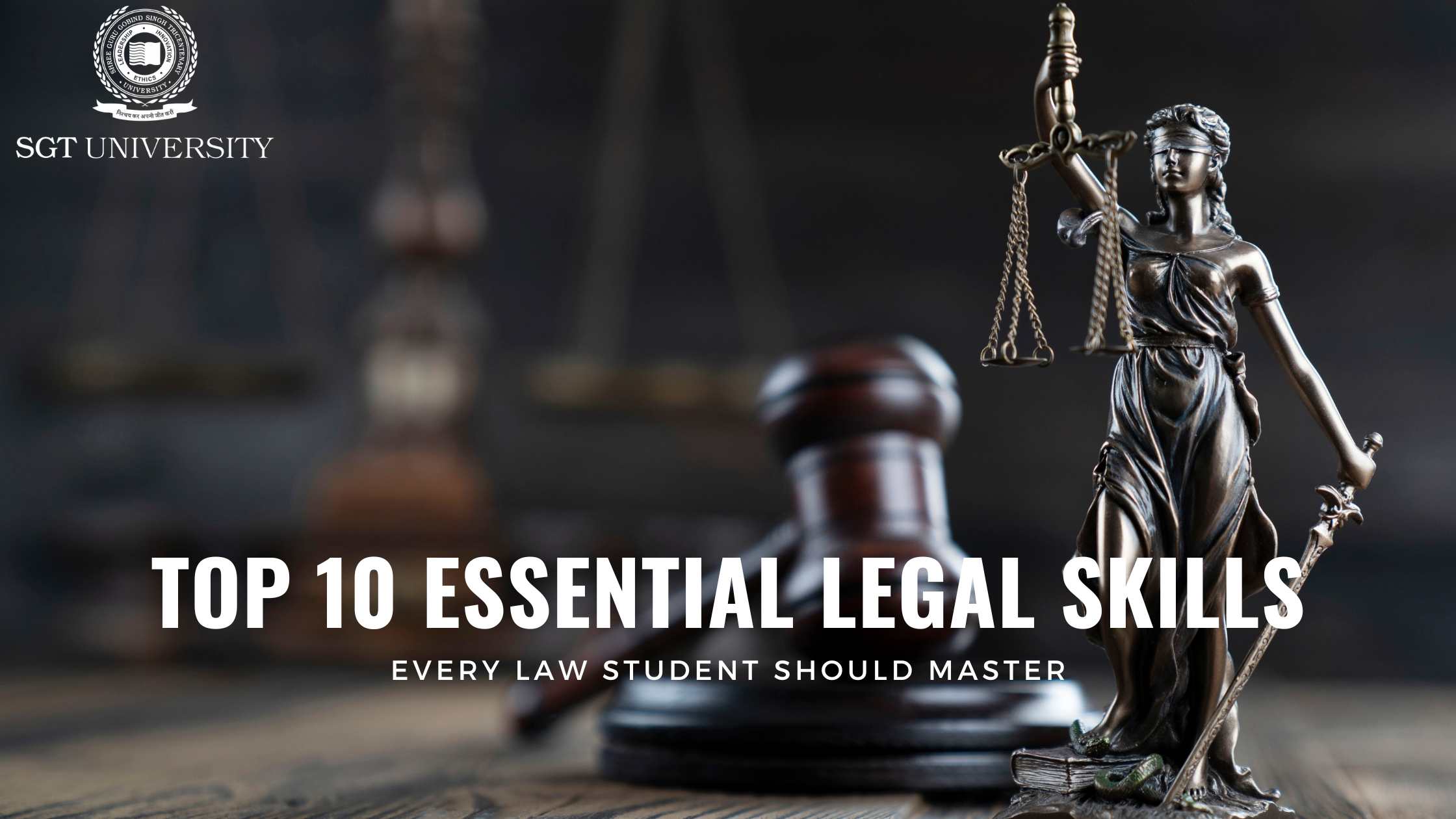Legal education is no walk in the park. While many may think that becoming a lawyer is all about memorizing statutes and case law, the truth is that being a successful lawyer requires much more than that. Lawyers need to develop a wide range of skills to be able to serve their clients effectively. In this article, we will discuss the top 10 essential legal skills every law student should master.
Introduction
Law students are taught many things during their time in law school, but some skills are more critical than others. These skills will help law students excel in their studies and prepare them for a successful career as a lawyer. In this article, we will explore the top 10 essential legal skills that every law student should master.
- Legal research
Legal research is a crucial skill that every law student should master. It involves researching legal issues, statutes, regulations, and case law. Law students should learn how to use online databases to conduct their research effectively. They should also learn how to analyze legal sources and identify relevant information.
2. Legal writing
Legal writing is another essential skill that law students should master. It involves drafting legal documents such as briefs, pleadings, and contracts. Law students should learn how to write persuasively and coherently. They should also learn how to use legal terminology effectively and present their arguments logically.
3. Analytical thinking
Analytical thinking is a critical skill that law students should develop. It involves analyzing legal issues and applying legal rules to specific fact patterns. Law students should learn how to identify relevant legal issues and distinguish them from irrelevant ones. They should also learn how to apply legal rules to specific fact patterns.
4. Problem-solving
Problem-solving is another critical skill that law students should master. It involves identifying legal issues and developing strategies to resolve them. Law students should learn how to identify different options and evaluate their advantages and disadvantages.
5. Negotiation and mediation
Negotiation and mediation involve resolving legal disputes outside of court. Law students should learn how to negotiate and mediate effectively to reach favorable outcomes for their clients. Negotiation and mediation are essential because they can save time and money for clients. They can also be less stressful than going to court.
6. Oral Advocacy
Oral advocacy is a crucial skill that law students should master. It involves presenting legal arguments orally in court or in other settings such as negotiations or hearings. Law students should learn how to speak clearly, confidently, and persuasively. They should also learn how to respond to questions from judges and other lawyers effectively. It can be the deciding factor in winning a case.
7. Time management
Time management is an important skill for lawyers. Law school can be overwhelming with the amount of reading, writing, and studying required. Law students should learn how to manage their time effectively to balance their workload and achieve their academic goals. Time management is critical for lawyers because they must be able to manage their time effectively to meet deadlines and provide quality legal services to their clients in the real world setting.
8. Client communication
Lawyers must be able to communicate effectively with their clients to understand their needs and concerns. They should learn how to listen actively, ask the right questions, and communicate clearly and honestly with their clients. Client communication is essential because it is how lawyers build trust and rapport with their clients. It can also help lawyers provide better legal services by understanding their clients’ needs and concerns.
9. Professionalism and ethics
Professionalism and ethics are critical skills that law students should inculcate. Lawyers must act with integrity, honesty, and professionalism at all times. Professionalism and ethics are essential for lawyers because they must maintain the trust and confidence of their clients, judges, and other lawyers.
10. Technological proficiency
In today’s digital age, technological proficiency is becoming an essential skill for lawyers. Law students must learn how to use legal technology tools such as legal research databases, case management software, and e-discovery platforms. They should also be proficient in using common office software such as Microsoft Word and Excel.
Law Courses Offered by SGT University
SGT University’s Faculty of Law offers a range of highly-regarded law courses for students seeking to pursue a career in the legal profession.
SGT University is considered one of the best law colleges in Gurugram, providing students with the skills and knowledge necessary to succeed in the legal field. Admissions are open. Apply now!



